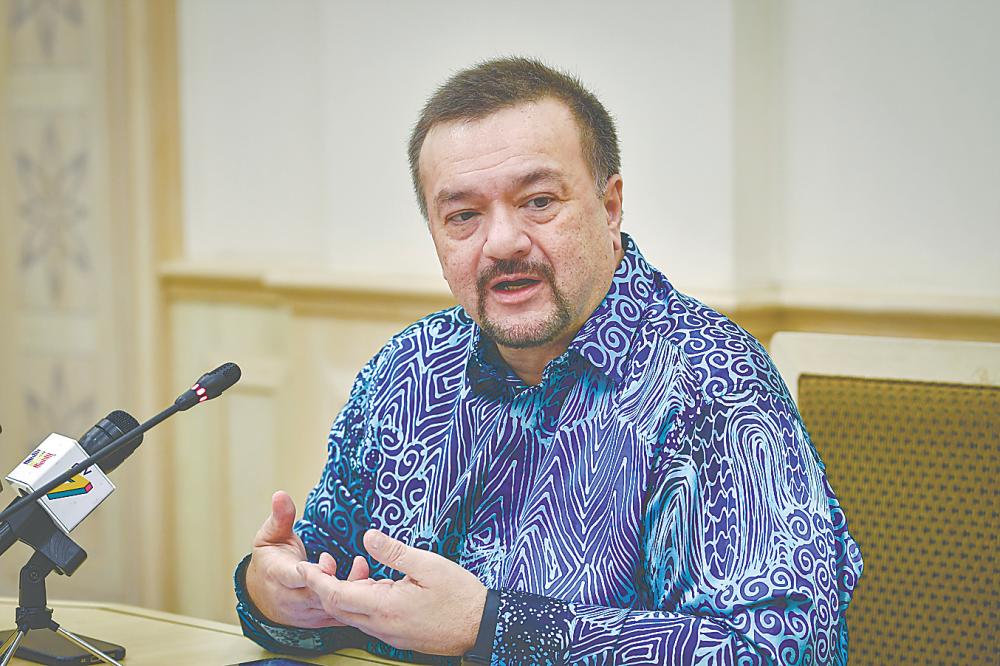PUTRAJAYA: The government is not considering retaliatory measures in response to the United States’ recently imposed “Liberation Day” tariffs, which include a 24% rate on Malaysian exports, said Finance Minister II Datuk Seri Amir Hamzah Azizan.
“We are not looking at retaliatory measures. We are engaging in discussions with the US through its institutions and government officials to understand what they are trying to imply, including the possibility of tariff reductions,” he said at a media conference on the curtain-raiser dialogue session for Asean finance track meetings today.
Amir Hamzah stressed the importance of calm, coordinated responses when tackling global trade challenges.
“In general, tariffs are a deterrent to world trade. We hope that through good, open dialogue, we can continue to support and promote free trade,” he said, adding Malaysia is lucky because it has tailwinds that are helping to push its economic base despite challenges in the global environment.
“But if the whole world trade struggles a little bit, we have to manage that part. But if global trade slows, we must manage that. That’s what the government is focused on, negotiating and building strategic links,” Amir Hamzah said.
Highlighting Malaysia’s economic strengths, he noted that the country has built resilience by diversifying its economic base.
“We have things that are within our control. We’re not only dependent on manufacturing and stuff. So that balance gives us better resilience than a lot of other places.”
He said Malaysia also benefits from a diversified trade portfolio with the US making up about 15% of Malaysia’s total trade, followed by China (12%), the European Union (8%) and Singapore (14–15%).
“If you look at what this government has been trying to do over the last year, year and a half, it’s actually trying to broaden it up even further. That’s why the trade missions have been going up. Brazil, Egypt, South Africa, Europe and so on, so that we can build better resilience into our system,” he explained.
Amir Hamzah said Malaysia is also supported by strong financial institutions.
He cited the GEAR UP initiative, under which government-linked investment companies have committed RM120 billion in domestic investments over five years as a major economic booster.
“That’s a huge stimulus to put in. And that again helps to create momentum domestically,” he said.
Amir Hamzah also pointed out that Malaysia’s foreign debt remains very low – just under 3% of total debt – thanks to a strong domestic market and robust demand for government and corporate papers.
He observed that despite foreign investors leaving the equity market, there is renewed confidence in Malaysia’s bond market.
“Foreign money has come back into Malaysia’s bond market. They’re comfortable with the Malaysian position, the economic outlook is okay, and stability is in place. So they just switch the asset class – from equity to bonds. Malaysia is still attracting quite a lot of good things.”
Furthermore, he said the government understands the importance of creating a more balanced and inclusive economy that doesn’t rely too heavily on just a few sectors or on low-wage labour.
“So one of the key things that we’ve been trying to do is actually to lift wages in the country. Because when wages are lifted, people have spending power. When they spend, the economy is also boosted along the way.”
He noted that government-linked investment companies have embraced the concept of a living wage, with higher starting points than the national minimum wage. “We want to ensure enough money is circulating within the economy so that local businesses can prosper.”
Going forward, Amir Hamzah said, the government will continue its efforts to attract foreign direct investment (FDI) and advance initiatives under the New Industrial Master Plan and the National Semiconductor Strategy to bring in high-value industries.
“Do we need to adjust certain things along the way? Probably. But at least there’s clarity and there’s positive motion that’s happening. And all the FDIs that have gotten in have actually started to pay out,” he said.
Amir Hamzah pointed to gross domestic product (GDP) data showing signs of momentum with private consumption up, construction seeing double-digit GDP growth, and manufacturing expanding.
“These are the benefits of incoming FDI translating into real economic activity.”
At the upcoming meeting, Amir Hamzah said Asean is working to ensure its collective voice is heard while strengthening intra-regional trade.
“The more Asean collaborates internally, the more resilience it builds. While global engagement is necessary, Asean must also do more within its own space than it is doing today,” he added.
Amir Hamzah said the free trade agreements Malaysia has entered into, along with efforts to simplify mutual recognition processes, are among the key initiatives being pursued.
“Previously, these were non-tariff barriers. When you impose import duties, access duties or procedural controls, you limit trade fluidity. What Asean has been working on over the years is simplifying these processes and finding common ground – being less protective where shared interests exist. For example, in the automotive sector, we’ve allowed preferential treatment for inter-Asean trade,” he explained.









